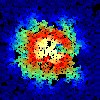Probability Seminar
Semimartingales play a fundamental role in stochastic analysis and mathematical finance. The question whether a given process is a semimartingale is also of importance in stochastic modeling, where long memory processes with possible jumps and high volatility are considered as driving processes for stochastic differential equations. The problem of identifying semimartingales within special classes of stochastic processes has a long history. In particular, Gaussian semimartingales have been well studied and Stricker's theorem (1983) is probably the most fundamental result in this area. It says that a symmetric Gaussian process is a semimartingale if and only if it is the sum of an independent increment Gaussian process and a Gaussian process of finite variation.
We consider generalizations of Stricker's theorem to infinitely divisible processes, i.e., processes whose finite dimensional distributions are infinitely divisible.
We show that the question when an infinitely divisible process is a semimartingale can often be reduced to a path property, when a certain associated infinitely divisible process is of finite variation. This gives the key to characterize the semimartingale property for many processes of interest, including linear fractional processes, moving averages, supOU processes, and more generally, Volterra processes driven by Lévy processes.
This talk is based on a joint work with Andreas Basse-O'Connor of Aarhus University.
